How AU grad Kira Steele created community through sobriety
Kira Steele on overcoming barriers, facing addiction, and creating safer spaces for others to do the same
It took Kira Steele (Bachelor of Commerce ’23) 9 years, 4 different schools, and getting sober to earn her degree. She has reached the finish line of her studies at Athabasca University with convocation on June 16, but the road to get there was anything but easy.
Starting at the age of 14, Steele struggled with alcohol and drug use—first alcohol, then cocaine, then both.
Steele comes from a family with significant mental health issues that span generations. Her father passed away from mental health and addiction when she was 9 years old, and she knew she’d end up like him if she continued the same path.
I got sober because I knew I was going to die. I was putting myself in danger every time I drank. Kira Steele (Bachelor of Commerce '23) and founder and president of the Boring Little Girls Club
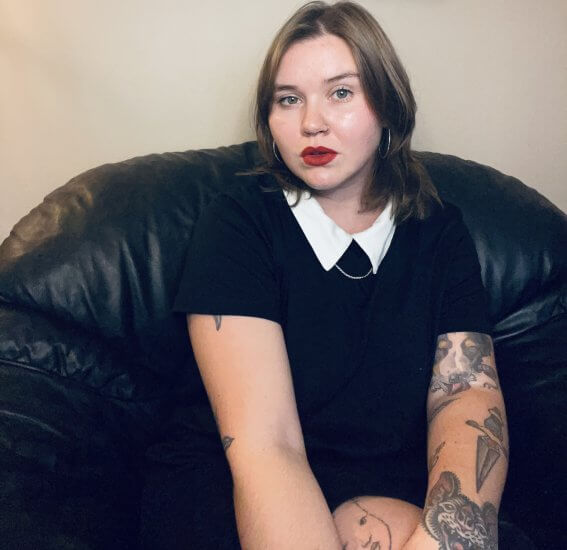
“I got sober because I knew I was going to die,” said Steele, now 27. “I was putting myself in danger every time I drank. So, I got sober.”
When she made the decision to pursue sobriety over 5 years ago, she lost friends, community, and support when she needed it most. Her “friends” told her being sober was boring and so was rebelling against the societal norm of drinking and using drugs socially.
She tried going to meetings, but they didn’t work for her. Realizing a need for social spaces that didn’t include alcohol or drugs, she created one.
“Someone called me a ‘boring little girl’ to my face, and that’s where the idea came from,” she said. “I was searching for support and knew that if I was feeling this way, someone else was too.”
Steele founded the Boring Little Girls Club in Calgary in November 2018.
Creating safer sober spaces
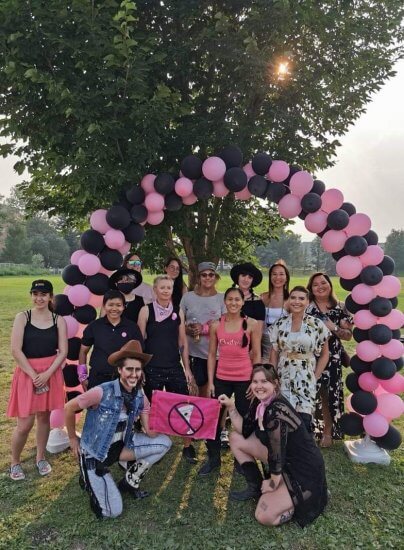
Boring Little Girls Club is a community of sober women, trans, and non-binary folks who support each other and have fun without alcohol or recreational drugs.
The club not only creates a safer, sober space for those in need, it’s also about building a community of individuals who support each other through what can feel like an isolating time.
“From my very first encounter with Kira and the Boring Little Girls Club, I was accepted as Nicole and treated with respect,” said Nicole Olchowecki, who found the club shortly after moving to Calgary before the pandemic. Olchowecki was battling addiction at the time and was just discovering her gender identity as a trans woman.
“I was allowed and encouraged to discover who ‘Nicole’ was and who she could become,” she said.
“The club saved my life by providing a safe, sober and accepting social space where people are encouraged to become involved in the group and larger community. It was a place that allowed me to emerge from my self-imposed prison.”
The club saved my life by providing a safe, sober and accepting social space where people are encouraged to become involved in the group and larger community. It was a place that allowed me to emerge from my self-imposed prison. Nicole Olchowecki, Boring Little Girls Club member
A safer space
The club is not a recovery group, Steele said, but rather a social, sober sphere that’s safer. No space can be completely safe, she explained, because people may have preconceived trauma.
The club is for women, transgender and non-binary folks only—a decision she made based on her own need for spaces that weren’t dominated by the patriarchy.
“There are very few spaces that are for women only that don’t have that patriarchal need for men to be in charge,” she said. “So I decided to take the men out of it. However, we still needed to make the doors open to trans folks.”
The women-only focus hasn’t been without pushback, which prompted Steele to write an article explaining Why no boys. But the choice has been hugely beneficial for club members like Olchowecki in need of a welcoming, supportive and judgement-free community. She called the club “essential” to her recovery and the development of her identity.
“The Boring Little Girls Club provided me with a connection to a community that I had no idea existed and has given me a place where I could grow and develop a sense of self without drugs or alcohol,” said Olchowecki.
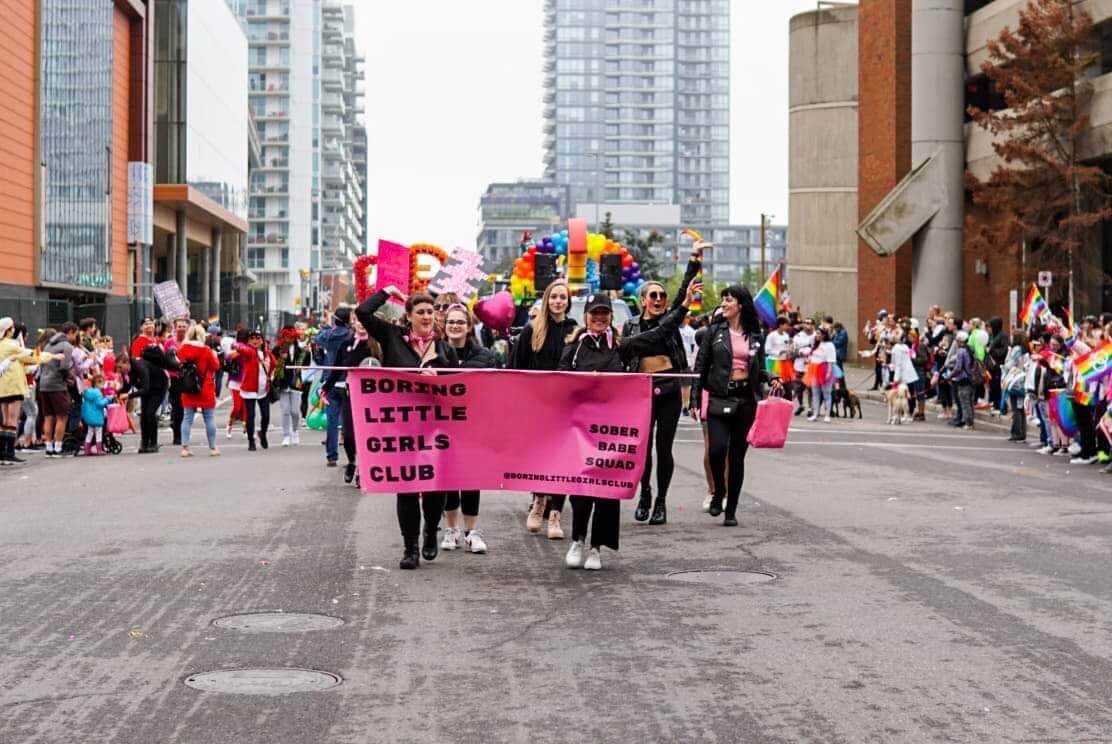
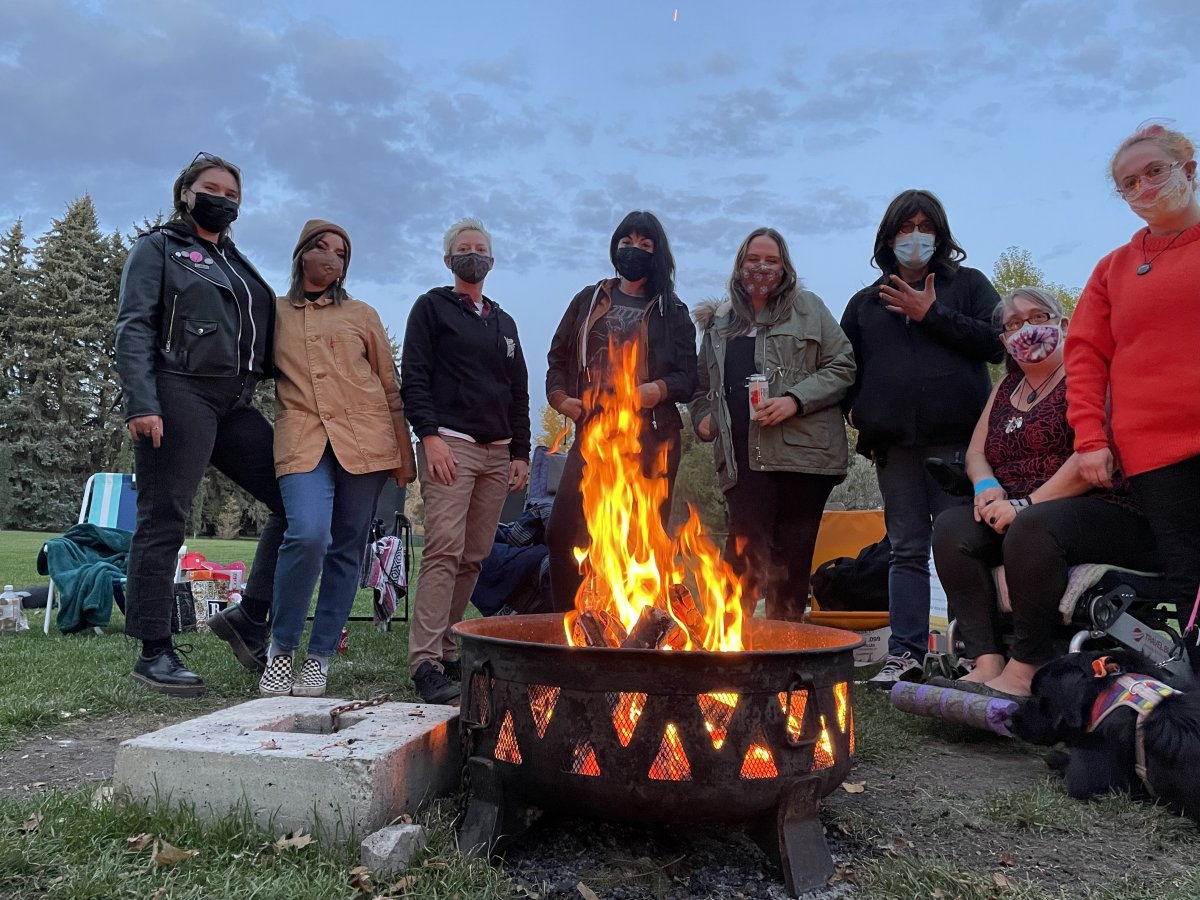
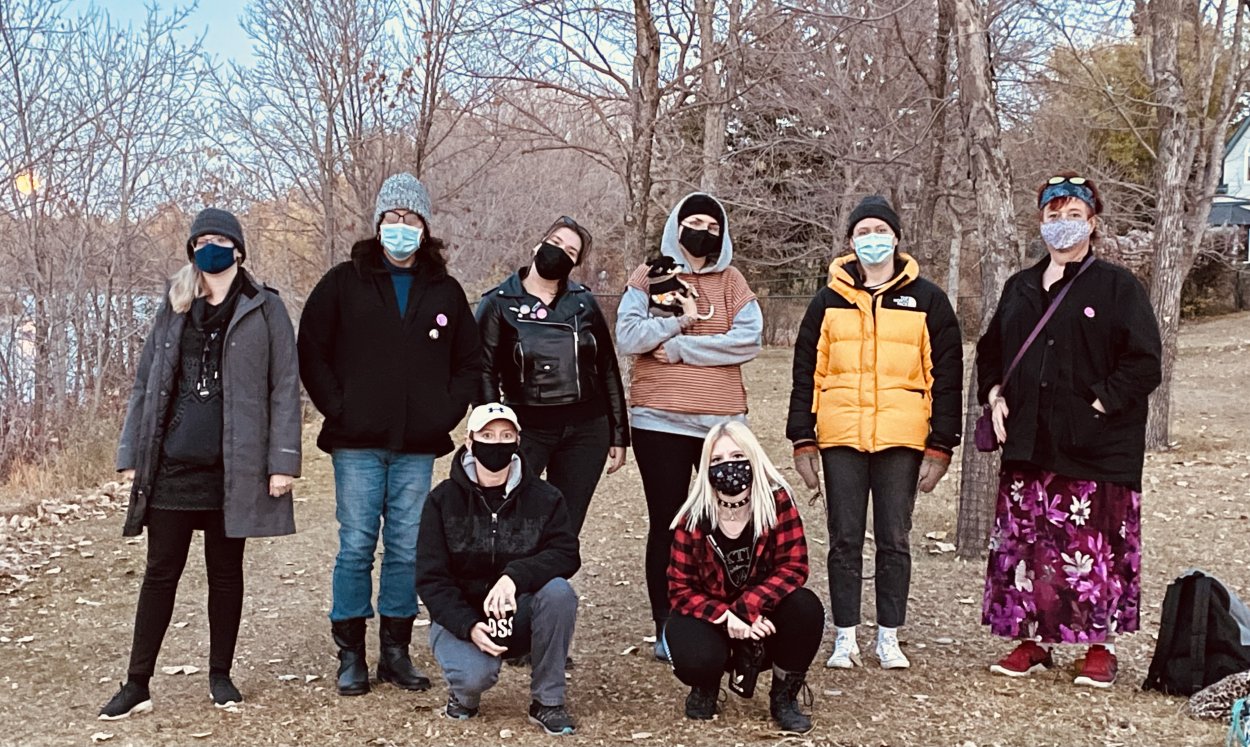
Pandemic fuels need for supportive community
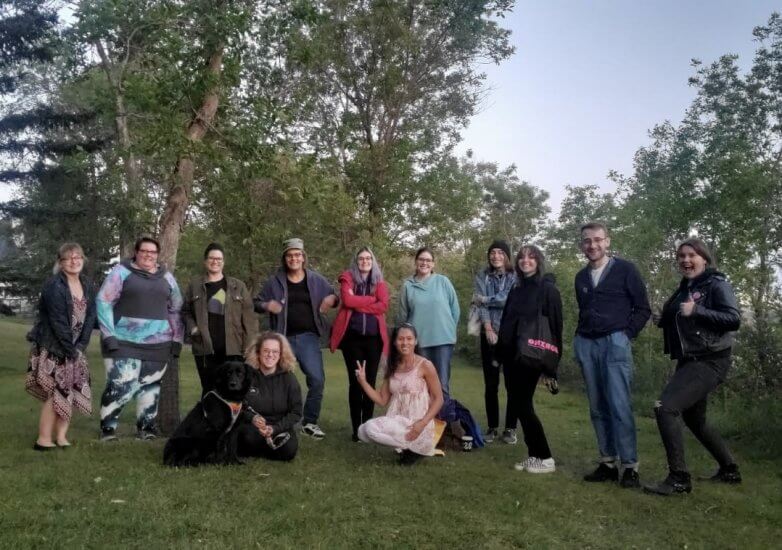
Steele said the club saw a huge uptick in membership during the pandemic. Research has shown that more people than ever are using alcohol and drugs at home. Feelings of isolation and the increase of activities like virtual “wine nights” to cope with the ongoing stress of COVID-19 has also increased the need for sober communities.
“If we’re not doing it, no one is doing it, because it’s not realized as a gap or a need,” she explained.
The club meets several times a month for activities such as game nights, coffee chats, and tarot card challenges. Steele explained that meetings transitioned to being virtual during the pandemic, but recently, they’ve held physically distanced outdoor campfire meet-ups—when the weather permits.
In recognition of her work with the club, Steele was selected as a 2021 finalist for the NU National Student Award for Outstanding Social Entrepreneurship. The award celebrates the work of student leaders in the community who show a commitment to their social enterprise as well as academic studies.
And Steele certainly has.
If we’re not doing it, no one is doing it, because it's not realized as a gap or a need. Kira Steele
Making change through empathy
When she’s not running the club or studying, Steele works as a provincial human resources manager for AAWEAR—Alberta Addicts Who Educate and Advocate Responsibly—a harm-reduction organization that supports people experiencing houselessness and addiction.
Her work with AAWEAR reflects one of Steele’s mantras: “The more empathy we have, the more change we can make.”
This shines through in everything she does in the community.
Now that she’s earned a bachelor’s degree, she hopes to begin a Master of Business Administration with AU, with a long-term goal of pursuing law school.
“I want to be a lawyer to strategically support things like human rights, advocacy work, and run a legal clinic for domestic abuse survivors—all things I have a huge passion for,” she said.
After overcoming barriers, conquering addiction, and creating safer spaces for others to do the same, Steele is proud of her accomplishments and looks forward to the future. The fact that she made the changes needed to look toward her future is pretty remarkable.
“I am thankful for AU because without AU I wouldn’t get my degree that’s taken me 4 schools and 9 years to get. I love this school. It’s given me the opportunity to do everything,” she said.
This story was originally published in January 2022.
Celebrating Convocation 2023!
Read more stories about AU students and grads as part of our Convocation 2023 coverage.